All Stories
-
 Particle Physics
Particle PhysicsElectrons surf protons’ waves in a new kind of particle accelerator
For the first time, scientists accelerated electrons using plasma waves from proton beams.
-
 Earth
EarthArtificial intelligence could improve predictions for where quake aftershocks will hit
Scientists trained an artificial intelligence system to figure out where aftershocks are likely to occur.
-
 Health & Medicine
Health & MedicineOfficials raise Puerto Rico’s death toll from Hurricane Maria to nearly 3,000 people
Nearly 3,000 Puerto Ricans died due to Hurricane Maria as of February 2018, according to a new report.
-
 Health & Medicine
Health & MedicineThe United States and Brazil top the list of nations with the most gun deaths
Globally, the estimated number of gun deaths due to homicides, suicides and unintentional injuries went up from 1990 to 2016.
-
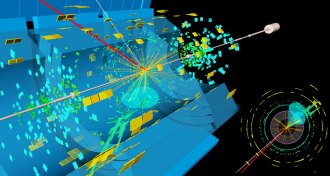 Particle Physics
Particle PhysicsAn elusive Higgs boson decay has finally been spotted
Two experiments at the Large Hadron Collider confirm that the Higgs boson decays into bottom quark pairs.
-
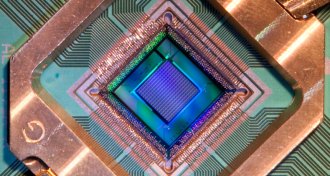 Quantum Physics
Quantum PhysicsQuantum computer simulates two types of bizarre materials
In calculations involving about 2,000 quantum bits, a D-Wave machine reproduced the behavior of exotic substances.
-
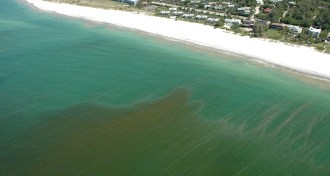 Health & Medicine
Health & MedicineAs algae blooms increase, scientists seek better ways to predict these toxic tides
Scientists around the United States are developing programs that can predict harmful algal blooms in advance.
-
 Science & Society
Science & Society5 decades after his death, George Gamow’s contributions to science survive
George Gamow, irreverent physicist and prolific popularizer, died half a century ago.
-
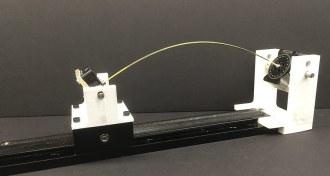 Physics
PhysicsHere’s how to bend spaghetti to your will
Researchers have discovered how to snap spaghetti sticks without sending bits of pasta flying.
-
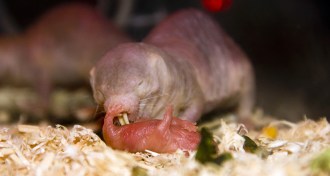 Animals
AnimalsNaked mole-rats eat the poop of their queen for parenting cues
Hormones in the naked mole-rat queen’s poop turn subordinate nest-mates into surrogate parents.
-
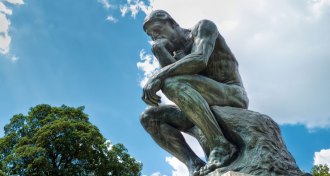 Psychology
Psychology‘Replication crisis’ spurs reforms in how science studies are done
Redos of social sciences studies from major journals point to opportunities for improvement.
By Bruce Bower -
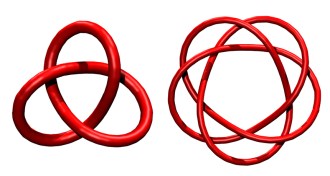 Chemistry
ChemistrySee the ‘periodic table’ of molecular knots
A new table of knots points the way to twisting molecules in increasingly complex pretzels.